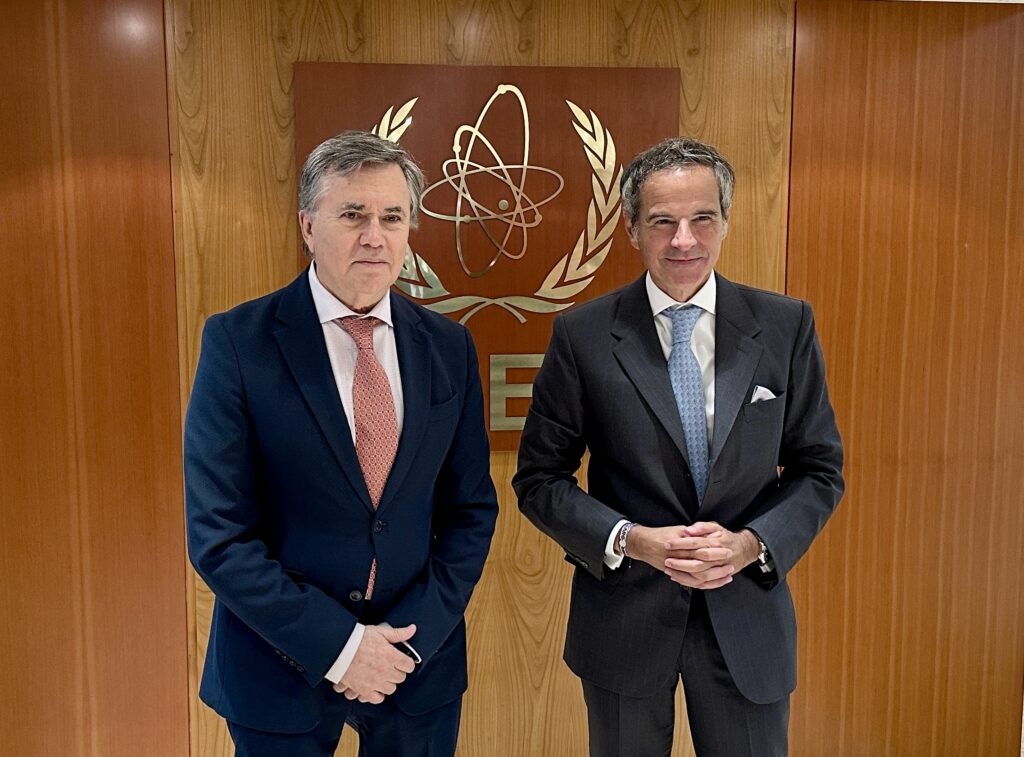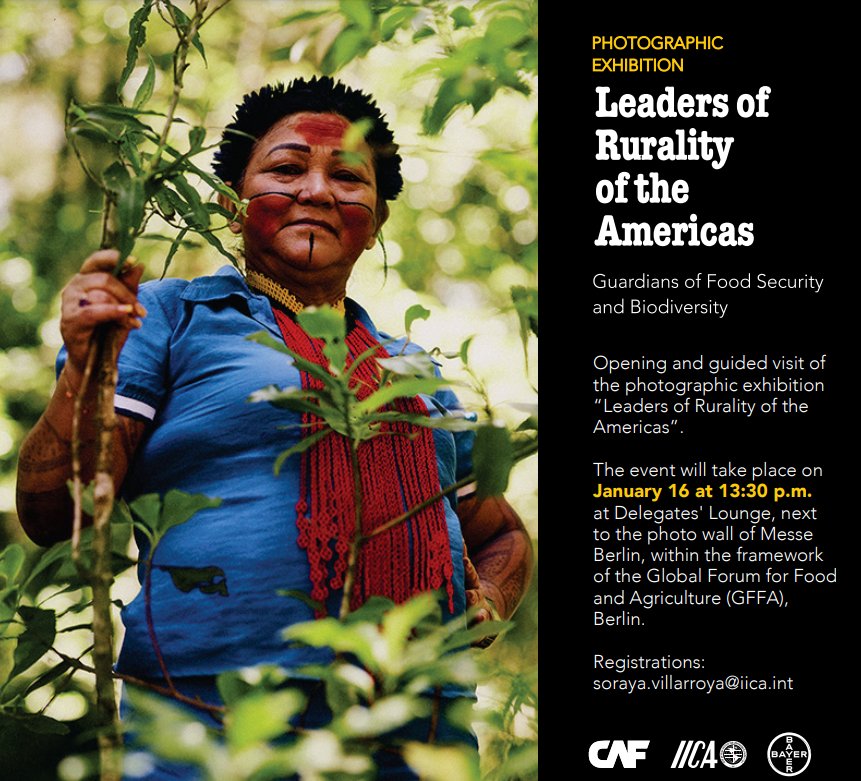Así lo explicó Carlos Augusto Salcedo, Ministro Consejero de Asuntos Agropecuarios de la Presidencia de Panamá, quien concedió una entrevista al programa Agro América, emitido por el canal de TV brasileño AgroMais.
Brasilia, 28 de febrero de 2023 (IICA) – La Política Agroalimentaria de Estado, vigente desde enero en Panamá, busca transformar la economía agroalimentaria para incorporarla junto al comercio y los servicios como motores de crecimiento y desarrollo y de esa manera garantizar la paz y la seguridad del pueblo panameño hacia el futuro.
Así lo explicó Carlos Augusto Salcedo, Ministro Consejero de Asuntos Agropecuarios de la Presidencia de Panamá, quien concedió una entrevista al programa Agro América, emitido por el canal de TV brasileño AgroMais.
La Política Agroalimentaria de Estado fue elaborada tras un proceso de análisis y diálogo participativo con todos los actores del ámbito público y privado del sector que llevó más de dos años y contó con una importante participación del Instituto Interamericano de Cooperación para la Agricultura (IICA).
La Asamblea Nacional de Panamá la aprobó en octubre de 2022 y el presidente Laurentino Cortizo Cohen la sancionó en enero de 2023, en un acto público al que invitó especialmente al Director General del IICA, Manuel Otero.
La norma declara prioridad del Estado la producción agropecuaria nacional por su papel central para la estabilidad social, política y económica del país y como instrumento para asegurar el derecho humano a la alimentación adecuada de la población.
Salcedo destacó en la entrevista televisiva que es la primera ley de su tipo en el continente y que no ha sido impuesta por un sector político, sino que ha dado respuesta a un reclamo histórico de los productores agropecuarios. “Hemos dotado al sector de una base jurídica que será garantía en el tiempo para desarrollar la actividad, independientemente del gobierno de turno”, afirmó.
Hizo énfasis, en ese sentido, en que el plan nació “de abajo hacia arriba”, ya que se enfoca en los productores, a través del fortalecimiento de la asociatividad, y en los consumidores.
El primer paso fue un proceso de consulta ciudadana, con el que se buscó escuchar a productores comerciales, consumidores, importadores, comerciantes, agricultores familiares y pueblos indígenas. “Así pudimos hacer un primer documento de referencia, que fue sometido a la aprobación al nivel más alto del Gobierno, que es el Consejo de Ministros”, relató Salcedo.
La norma estableció un consejo de cumplimiento de la Política de Estado, integrado por 29 miembros, de los cuales 21 son del sector no gubernamental y sólo ocho del gobierno. “Esto indica que el seguimiento no descansa en el Estado sino en la sociedad”, afirmó Salcedo.
El funcionario explicó que la ley, de 91 artículos, crea las condiciones para la transformación tecnológica del agro y tiene como ejes a la productividad, la competitividad, la soberanía alimentaria y la seguridad jurídica.
“Con el IICA, que desde el primer momento se mostró dispuesto a ayudar, coincidimos en que la Política debía centrarse en garantizar la soberanía y la seguridad alimentaria del pueblo panameño. Para ello, identificamos que debía ser inclusiva, sostenible y territorial y que tenía que garantizar la participación ciudadana y la gobernanza”, dijo Salcedo.
Comercio en dos mares
Durante la entrevista, Salcedo contó que, desde el punto de vista comercial, se busca “aprovechar nuestra posición geográfica, que nos permite poner en los dos mares la producción no solo nuestra, sino también de los países vecinos. Abrimos la puerta como país para el establecimiento de un hub alimentario, que sirva para exportar la producción no como país, sino como bloque de países, hacia mercados del Atlántico y el Pacífico”.
La legislación también hace hincapié en la adecuación de la institucionalidad agropecuaria para favorecer tanto la mitigación del cambio climático como la adaptación, a través del uso de tecnologías para crear resiliencia ante fenómenos climáticos extremos.
El plan, que incluirá una adecuación de la institucionalidad pública agropecuaria, tiene una duración de diez años y su implementación será medida todos los años a través de una plataforma digital.
Proyectos e inversiones
Salcedo adelantó que existe un portafolio de proyectos para potenciar la producción agroalimentaria panameña que prevé inversiones por 1.242 millones de dólares, a través de organismos multilaterales de financiamiento como CAF-Banco de Desarrollo América Latina y el propio gobierno.
El ministro consejero explicó que Panamá es un país con 4,2 millones de habitantes, más de 75 500 kilómetros cuadrados de superficie y un área agrícola restringida, que ha decidido potenciar su producción de alimentos, respaldando tanto a agricultores familiares e indígenas como a productores comerciales que tienen como horizonte los mercados internacionales.
“Es un verdadero cambio de mentalidad. No será fácil transformar el modelo económico de un país tradicionalmente de comercio y servicios. Debemos fortalecer la actividad agropecuaria con investigación, con tecnología y con una adecuación de la institucionalidad”, afirmó durante la entrevista.
“Ahora el agro –sostuvo- sabrá hacia dónde debe caminar para buscar productividad y competitividad. Y estará protegido, ya que sabe que mañana no se abandonará a los productores para volver a privilegiar las importaciones”.
“Estamos convencidos de que esta Política Agroalimentaria de Estado puede servir de referencia a otros países de América Latina y estamos listos para colaborar con quienes tengan la misma decisión política”, concluyó.
Agro América es un programa emitido por el canal brasileño de TV Agro Mais, del Grupo Bandeirantes de comunicación, cuya producción es fruto de una alianza con el Instituto Interamericano de Cooperación para la Agricultura (IICA).
La emisión presenta la actualidad del sector agropecuario y la ruralidad en los países miembros del IICA, con el objetivo de promover el intercambio de experiencias y una discusión sobre desafíos y oportunidades de América Latina y el Caribe en el área de desarrollo agropecuario y rural.
Más información:
Gerencia de Comunicación Institucional
comunicacion.institucional@iica.int










